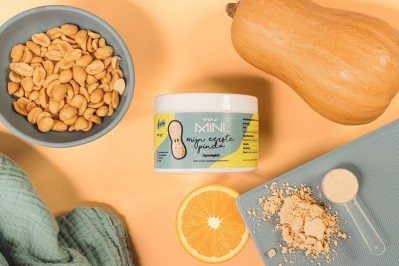Boiled peanuts could help overcome child peanut allergy, clinical trial shows

The clinical trial, published in the journal Clinical & Experimental Allergy, tested if a therapy delivering sequential doses of boiled peanuts, followed by roasted peanuts, could help children overcome their peanut allergies.
The trial built on previous research conducted by senior author and Flinders University’s College of Medicine and Public Health Associate Professor Tim Chataway showing that heat affects the protein structure and allergic properties of peanuts, meaning they were less likely to cause a severe allergic reaction.
In the study, small and increasing doses of boiled nuts were first given to children to partially desensitise them, and when they showed no signs of an allergic reaction, increasing doses of roasted peanuts were then provided to increase their tolerance in the next stage of treatment.
To achieve this multi-step process known as oral immunotherapy, the researchers asked 70 peanut-allergic children (6-18 years) to eat peanuts boiled for 12 hours for 12 weeks, 2 hour boiled peanuts for 20 weeks, and roasted peanuts for 20 weeks.
This novel two-step therapy was tested in anticipation of achieving daily targets of participants consuming 12 roasted peanuts without allergic reactions.
The results showed 56 of the 70 (80%) participants became desensitized to the target dose of peanuts. Treatment-related adverse events were reported in 43 (61%) of participants, however only 3 withdrew from the trial as a result, demonstrating a favourable safety profile.
This clinical trial could help develop a novel treatment pathway to reduce the risk of accidental peanut exposure and significantly improve quality of life for peanut allergic children and their carers, said Flinders University’ College of Medicine and Public Health and South Australian Health and Medical Research Institute Associate Professor Luke Grzeskowiak.
“Our clinical trial shows promising early signs in demonstrating that boiling peanuts may provide a safe and effective method for treating peanut allergic children with sequential doses of boiled and roasted peanuts over an extended period of time,” he said.
“With no currently approved treatment for peanut allergy in Australia there is a lot more research to be done. Unfortunately, oral immunotherapy doesn’t work for everyone and we are in the process of improving our understanding of how these treatments work and what factors can influence how people respond to treatment. This will be really important for assessing individual suitability for treatment and improve treatment decisions in the future.”
Food allergy is not a rare condition. Data from the European Federation of Allergy and Airways Diseases Patients Associations (EFA) suggests 17 million Europeans suffer from food reactions a year, of which 3.5 million are under the age of 25. Peanut allergy is one of the most common food allergies in children and the most common cause of food allergy deaths.
Research from the likes of LEAP in the US has found that early childhood exposure to peanut decreases the risk of developing peanut allergy and found that this tolerance to peanut remains after one year of not eating peanuts. Similar studies in the UK have also shown repeated exposure over time to gradually increased doses of the allergen, could allow sufferers to increase their tolerance to peanuts. This research led to a new first-of-its kind drug, taken orally, to be approved in England.
Companies are also innovating in this area. For example, Dutch company Vini Mini has unveiled a product to prevent peanut allergies in babies, involving giving babies the exact amount of allergens, to prevent them developing food allergies
First, a ‘Startkit’ contains capsules or sachets with the right dosage of peanut flour to give peanut to a baby for the first time. A follow up kit contains 100% peanut flour and a measuring spoon for parents to put in their baby’s food every week for six months.
“It's healthy and safe because it's in small doses and no salt and sugar,” said co-founder Jozien Boersma. “The idea is that parents can give it in a safe setting in small dosages for the first time which increase perstep. The last step is the dose parents should give weekly for six months.” The method can reduce the risk of a baby developing a peanut allergy by 80%, the company claimed.
Reference
‘Oral immunotherapy using boiled peanuts for treating peanut allergy: An open-label, single-arm trial’
Clinical & Experimental Allergy
DOI: 10.1111/cea.14254
Authors: Luke E Grzeskowiak, Billy Tao, Kamelya Aliakbari, Nusha Chegeni, Scott Morris and Tim Chataway














